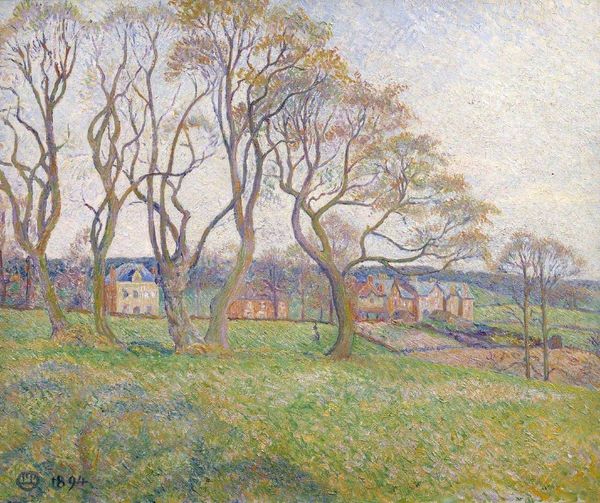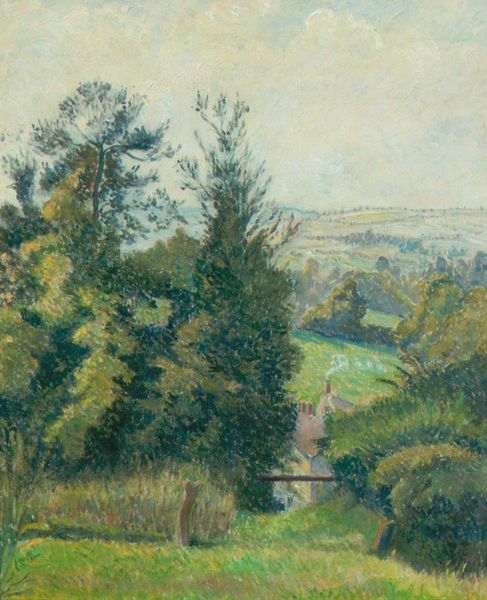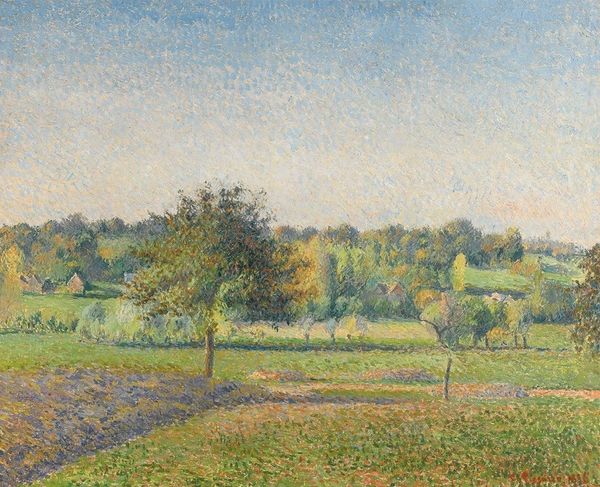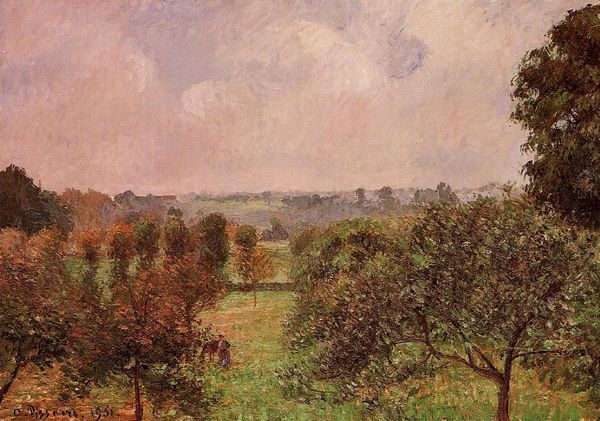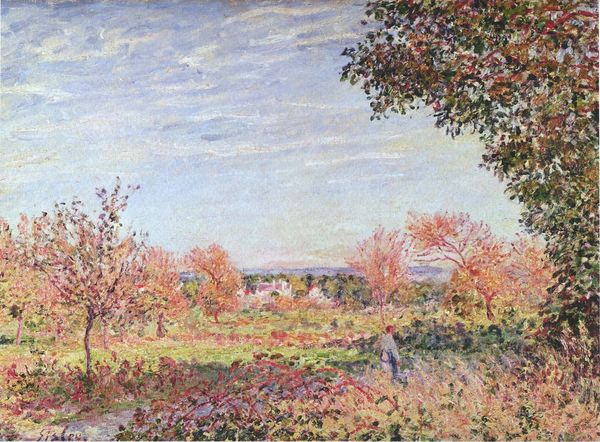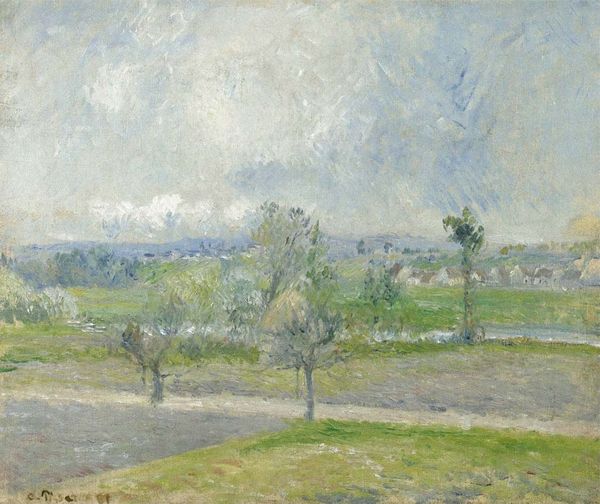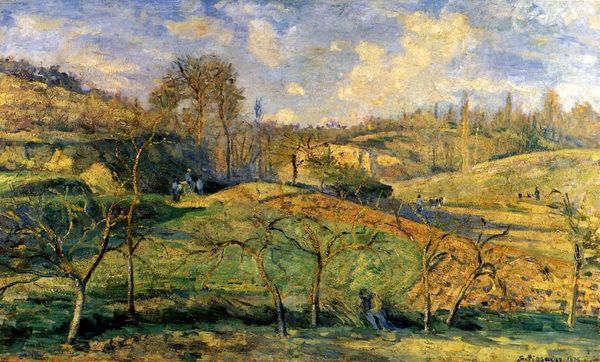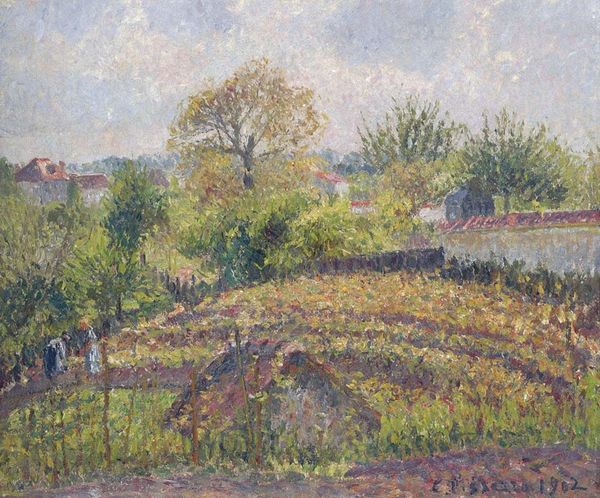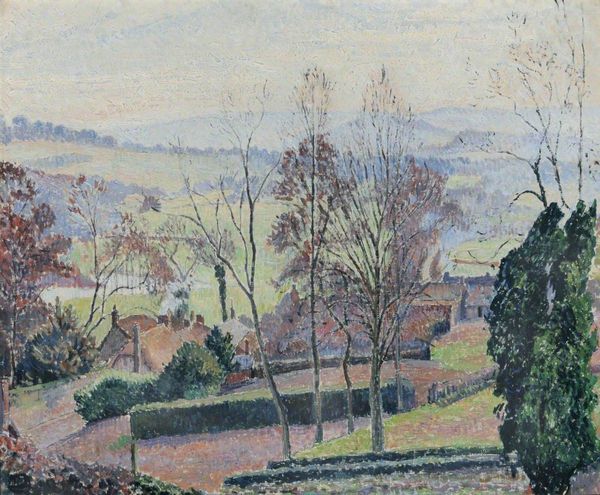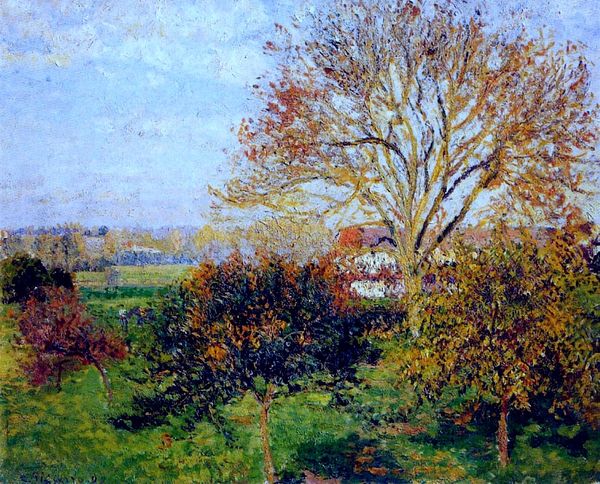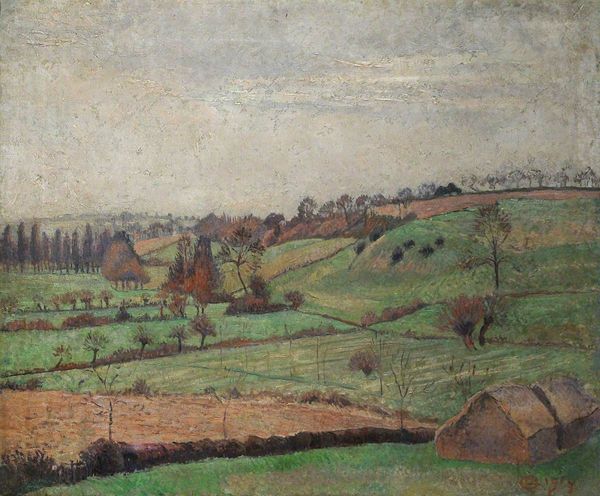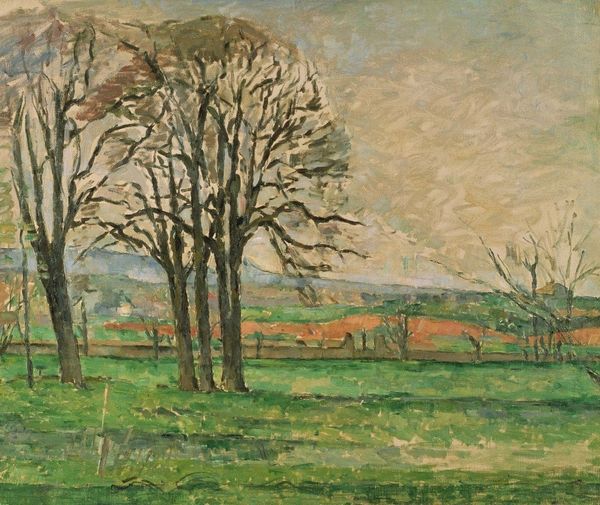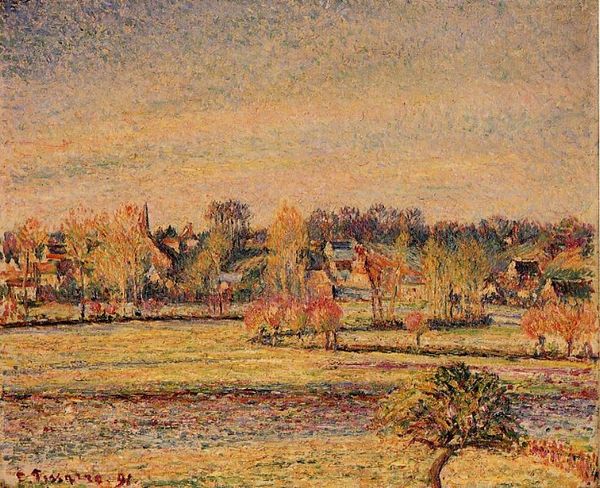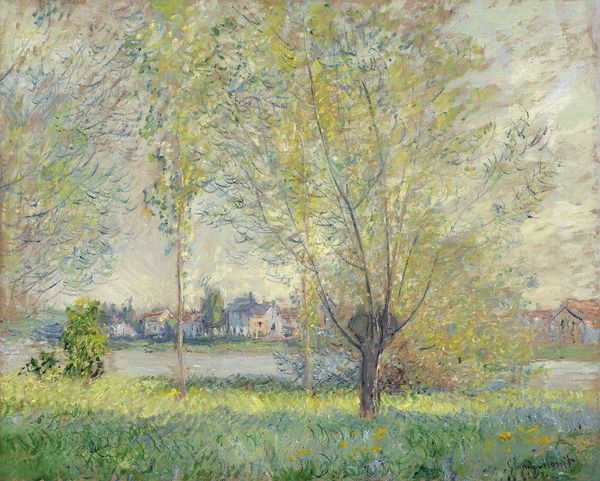
Copyright: Public domain
Curator: Looking at Lucien Pissarro’s "Acton, Matin, Temps Gris" from 1906, I'm immediately struck by how peaceful yet muted the colors are. Editor: Yes, the overcast sky really sets the tone, doesn’t it? There’s something almost melancholic about it, a sense of quiet reflection perhaps. The painting really speaks to me in terms of the social realities of the time, you know, late Victorian era, a society steeped in both privilege and profound inequality. I wonder, looking at that seemingly idyllic landscape, if it’s a deliberate contrast to the socio-political turmoil bubbling beneath the surface. Curator: That’s a fascinating perspective! I am more drawn to the composition, the way Pissarro uses the layering of the landscape, the hedge in the foreground acting almost like a proscenium, framing the view of the green hill and distant houses. It's a way of organizing space that echoes, I think, the harmony that artists were looking for, visually suggesting certain ideals around society and the order of nature. The houses are there in the distance but everything else looks really unkempt... Editor: Unkempt? I perceive it as natural and almost romantic, untouched. But to your point about social harmonies and the role that domestic life plays, I cannot but see the politics involved, given women’s roles, as nurturers. Also, given that the style is Impressionist, does it evoke that kind of ephemeral nature? Curator: Exactly, a kind of captured moment that is lost as soon as it appears; an awareness of time always in flux. But how interesting that you relate women's social standing and political expression! Editor: These landscapes, for many women who often could not occupy many important civic spaces, these domestic settings and "scenes of nature" had complex socio-political meanings and roles that they adopted for resistance and expressing autonomy and presence. Curator: Such a layered landscape we were just considering now with multiple layers of political and historical meaning, indeed! The artist makes this small English village bear a lot more for us! Editor: Absolutely. It prompts us to consider how seemingly innocuous depictions of nature can hold layers of political commentary if you center a careful historical inquiry.
Comments
No comments
Be the first to comment and join the conversation on the ultimate creative platform.
